Hey there! If you've ever found yourself in need of a financial status update from someone, you're not alone. Whether it's for personal reasons or business insights, getting this information can make a world of difference. In the following paragraphs, we'll explore a simple yet effective letter template you can use to request an update, tailored to suit your specific needs. So, let's dive in and discover how to nail that request!

Purpose and Clarity of Request
Maintaining a clear financial status is crucial for informed decision-making within organizations. Accurate financial documents, often including balance sheets and income statements, provide a comprehensive view of fiscal health. Regular updates promote transparency, facilitate strategic planning, and allow stakeholders to gauge the performance against budgeted targets. Financial statements can reveal essential metrics, such as cash flow (the total amount of cash moving in and out of the company), profit margins (the percentage of revenue exceeding costs), and liabilities (financial obligations or debts). Requesting these updates ensures that all parties involved remain aligned with the organization's objectives, fostering accountability and enhancing trust within the team.
Recipient Identification and Details
Recipient identification in financial status update requests is crucial for maintaining clear communication. Typically, this section includes key details such as the recipient's full name, designation or role, and the organization or company name (e.g., ABC Financial Solutions). Including contact information such as email address and phone number (e.g., +1-800-555-0199) ensures direct and efficient communication. The date of the request, as well as the subject line indicating the purpose (e.g., "Request for Financial Status Update"), enhances clarity. It is also advisable to include any relevant account or reference numbers associated with the request for quick identification. Clear identification promotes professional interactions and expedites the information retrieval process.
Specific Financial Details Requested
Specific financial details, such as current account balances, recent transaction history, and outstanding debts, are essential for evaluating overall financial health. For individuals or businesses, accurate data from financial statements, including profit and loss reports or balance sheets, can provide insight into cash flow patterns and potential areas for cost reduction. Additionally, understanding asset valuations, such as real estate or investments in stocks, is crucial for long-term financial planning. Timely updates on these financial items contribute to informed decision-making and can significantly impact future investments or financial strategies.
Confidentiality and Privacy Assurance
Financial status updates are crucial for ensuring transparency in corporate governance, particularly in publicly traded companies such as those listed on the New York Stock Exchange. These updates often include sensitive data related to income, expenditures, and future projections, which must be handled with utmost confidentiality. Regulatory frameworks like the Sarbanes-Oxley Act mandate strict adherence to privacy protocols, safeguarding investors' trust. Organizations utilize secure channels for communication, ensuring that sensitive information is encrypted and only accessible to authorized personnel. Regular audits and monitoring help maintain compliance with privacy standards, fostering accountability and secure financial reporting practices.
Contact Information and Response Deadline
A financial status update request is essential for understanding current fiscal positions in various organizations. Clear contact information such as email addresses, phone numbers, and department names ensures prompt communication between parties involved. Setting a response deadline, for instance, 14 days from the date of the request, emphasizes the urgency and importance of timely feedback. Providing details about the organization's name, financial metrics such as revenue figures or budget allocations, and any relevant periods, such as quarterly or annual financial reports, helps clarify the information needed and facilitates a more organized response process.

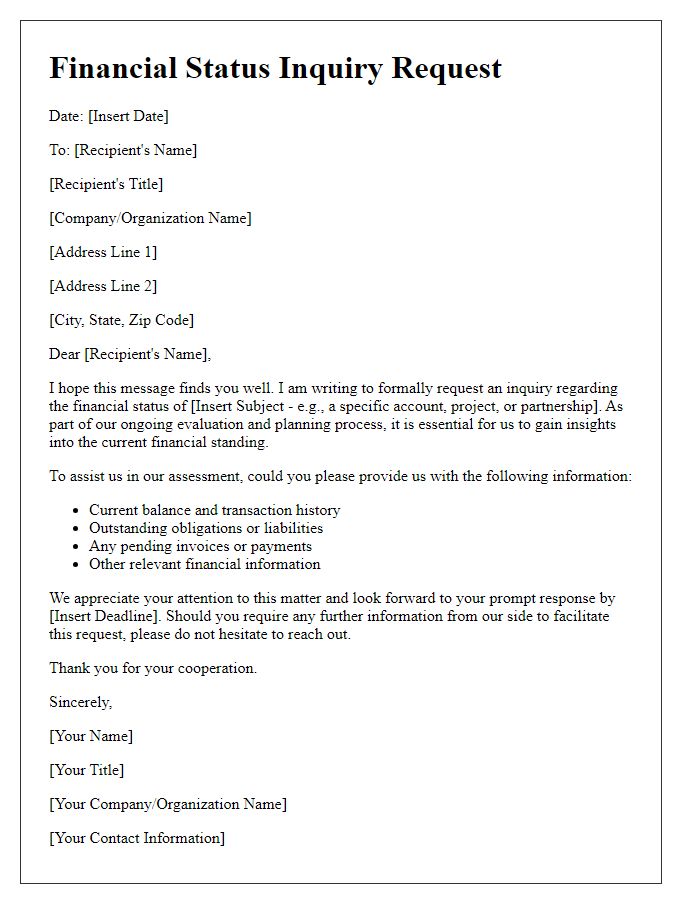
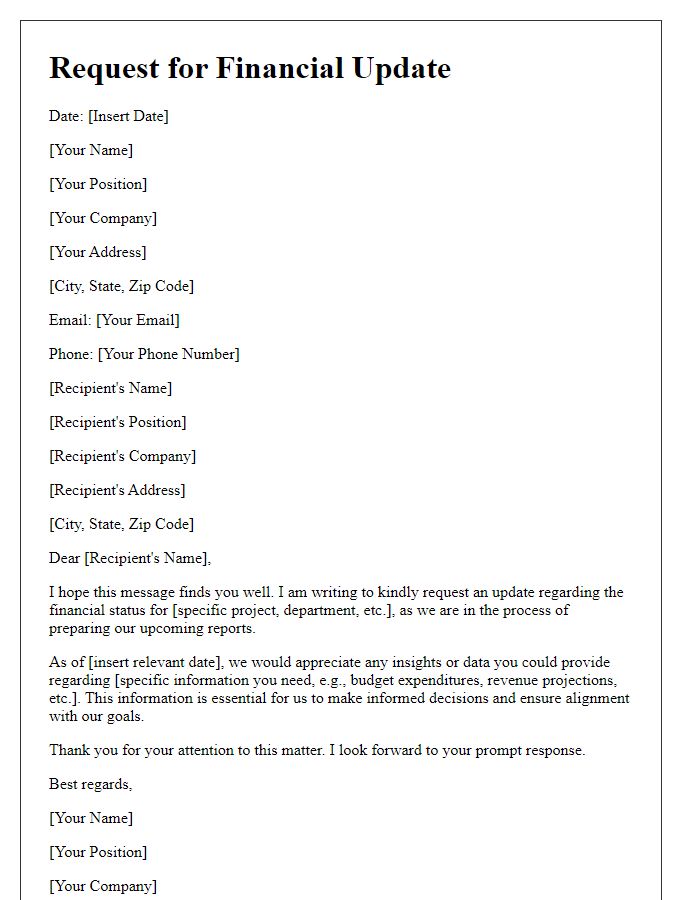
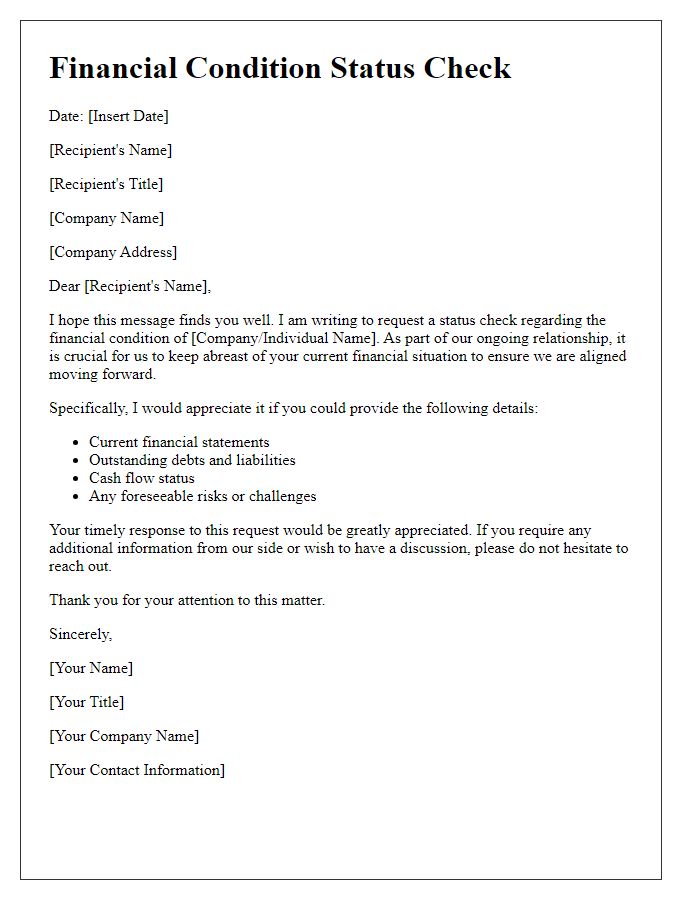
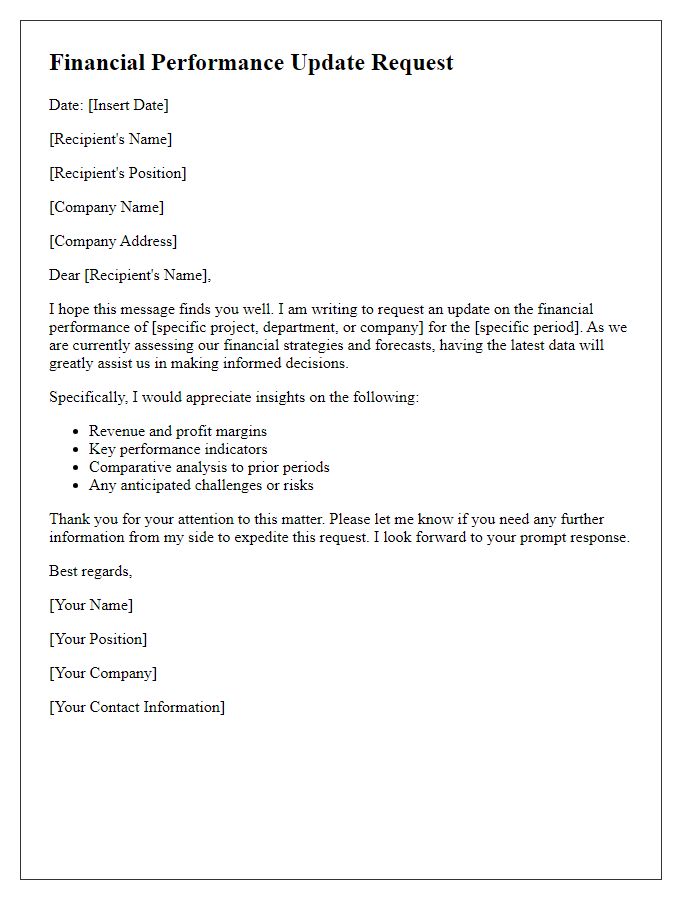
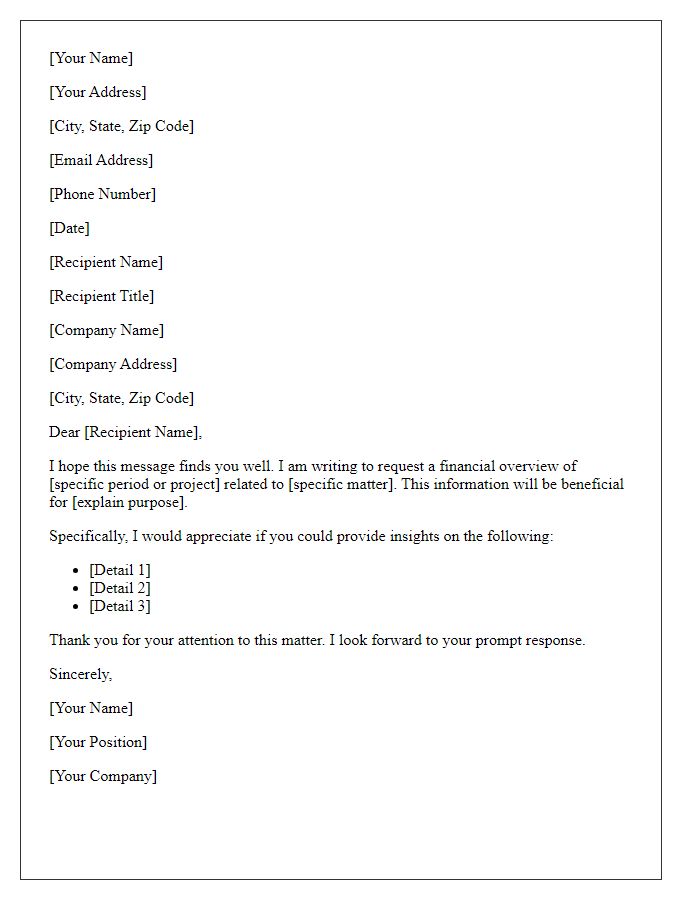
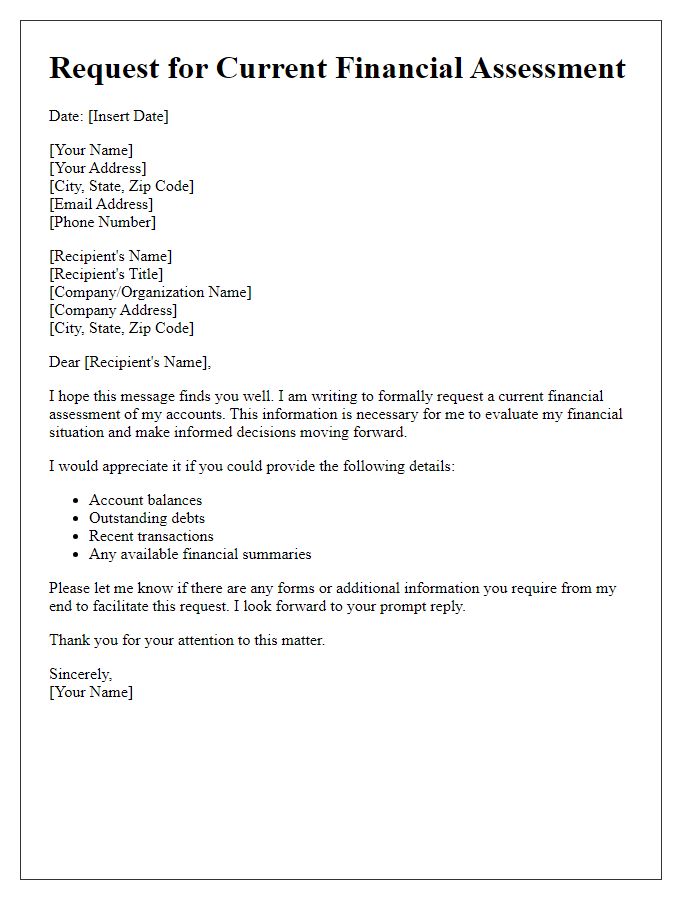
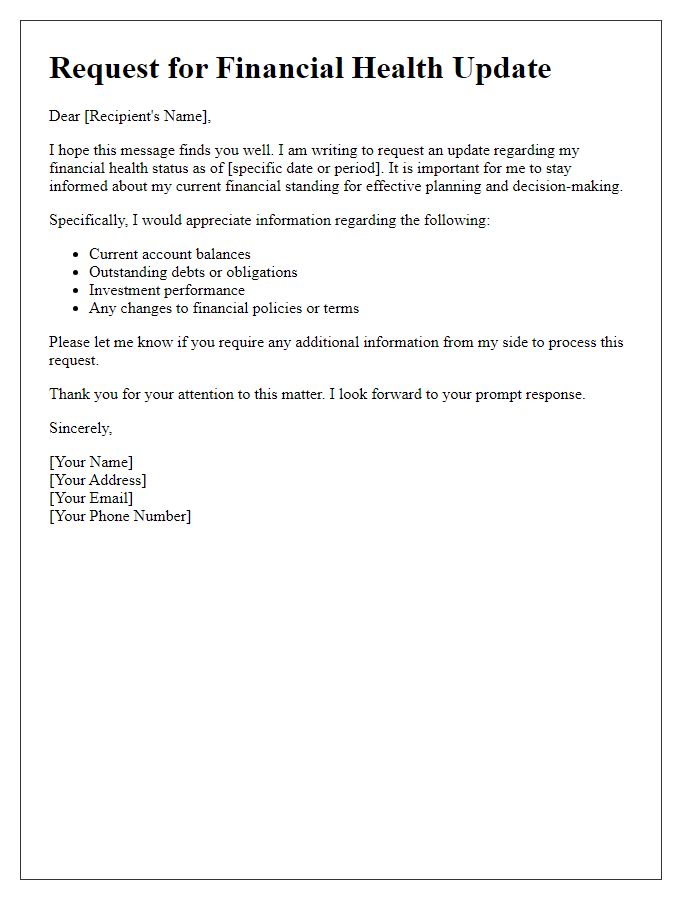
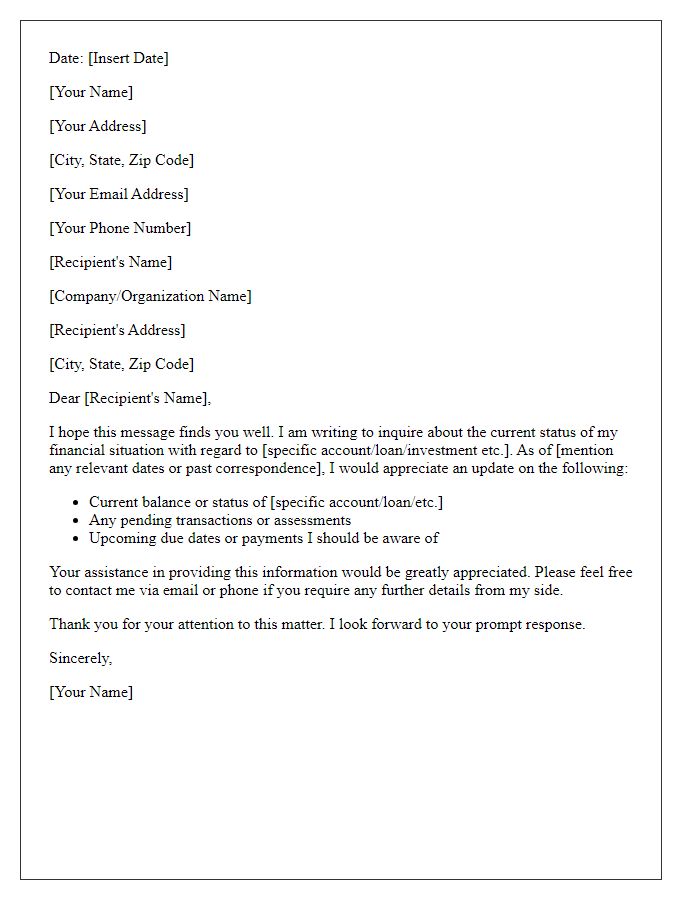
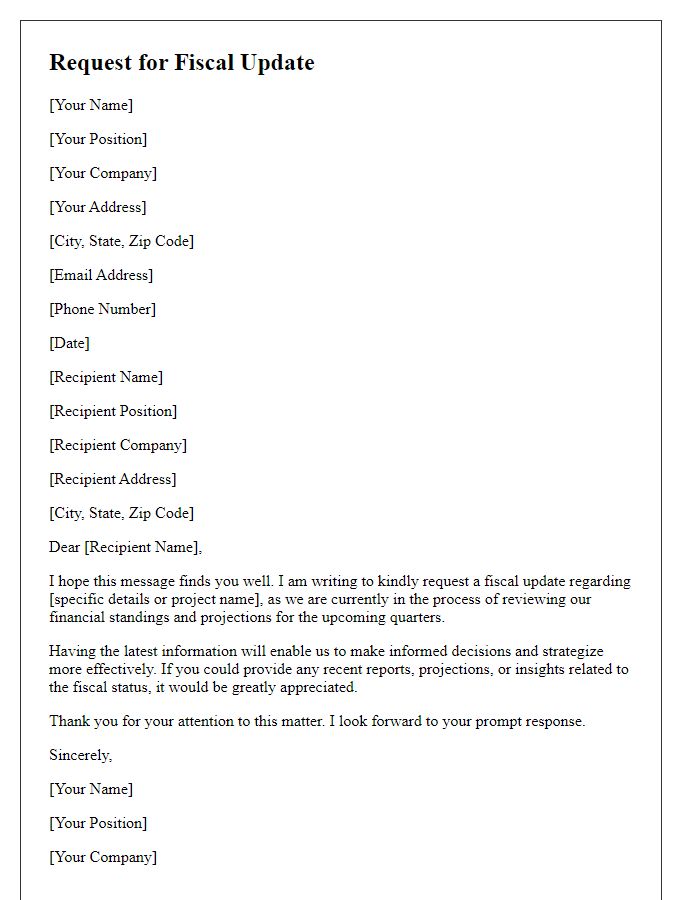
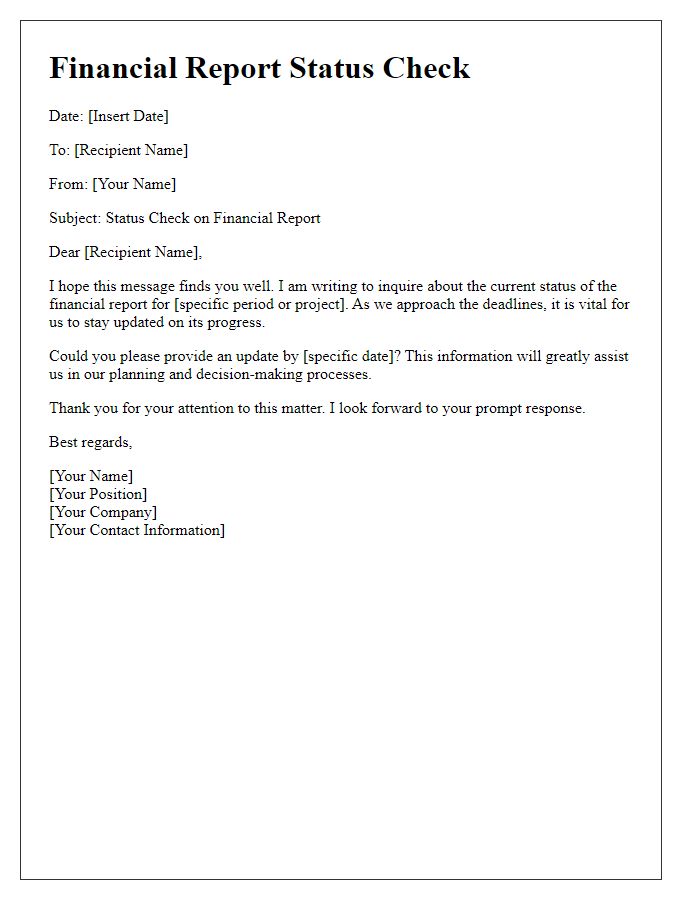


Comments